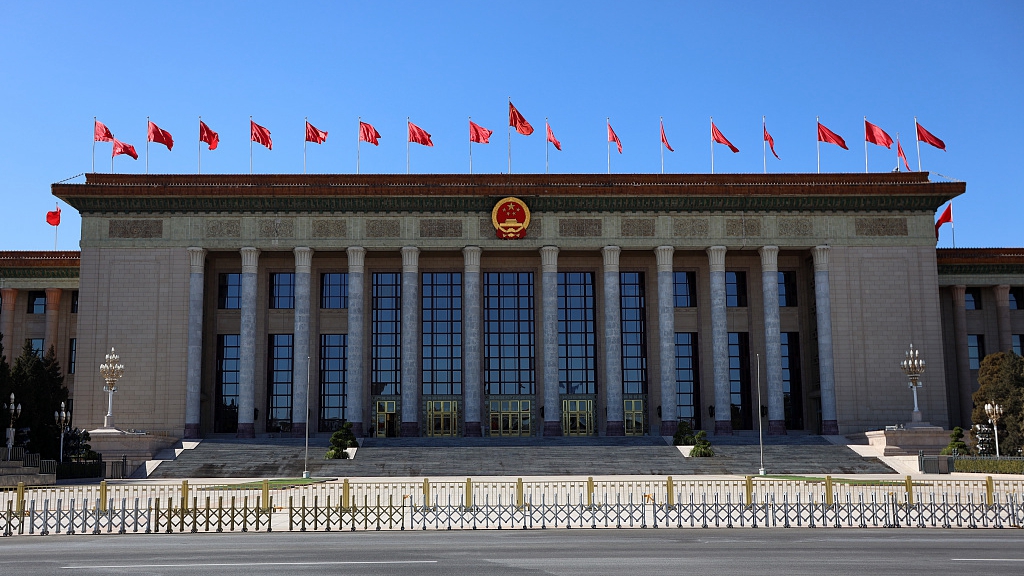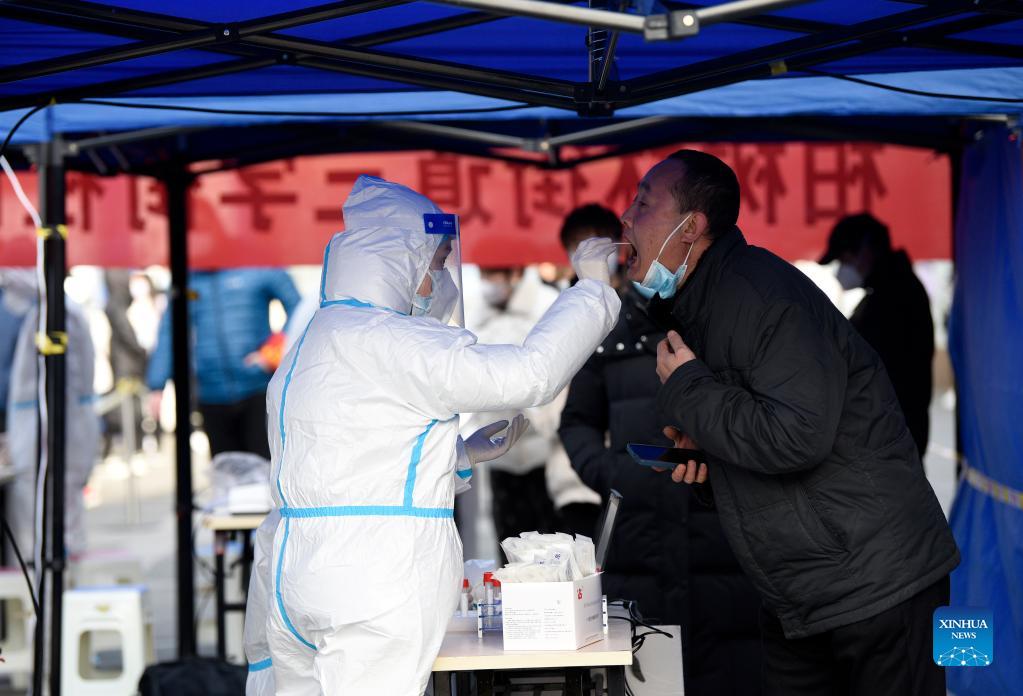
The Great Hall of the People in Beijing, China, March 1, 2022. /CFP
The Great Hall of the People in Beijing, China, March 1, 2022. /CFP
Editor's note: The Two Sessions, a major event on the Chinese political calendar, is underway. We've invited experts from various fields to write articles about hot issues that help us better understand today's China. This is the third piece of our "China's Road to Development" series. John Ross is a senior fellow at Chongyang Institute for Financial Studies, Renmin University of China. He is a former director of economic and business policy for the mayor of London. The article reflects the author's opinions and not necessarily those of CGTN.
China's annual "Two Sessions" involving the National Committee of the Chinese People's Political Consultative Conference (CPPCC) and the National People's Congress (NPC) is taking place in Beijing. This is always a major event on China's political calendar, but it has also increasingly become an important focus of international attention.
Even by these standards, however, this year's Two Sessions will be a subject of global focus. The reason for this is the direct and indirect result of the fact that China has been so much more successful than any other major country in dealing with the COVID-19 pandemic.
Both the direct consequences, such as the saving of lives, and the indirect ones, in particular economic, are on such a scale as to constitute a significant change in the international situation. They will therefore give the Two Sessions much to discuss.
Starting with the most important issue, saving lives, the contrast between China's success and failure in countries such as the U.S. is extraordinary. Taking just raw data, by March 2, since the beginning of the pandemic, the Chinese mainland had suffered 4,636 deaths from COVID-19.
In contrast, the U.S. had suffered 954,518. The scale of death in the U.S. is extraordinary. The number of Americans dead from COVID-19 is over 200 times as many deaths as China and twice as much as the 420,000 U.S. citizens killed in World War II.
But even this figure greatly understates China's success in dealing with COVID-19 compared to the U.S. because China's population is more than four times larger than the U.S. Putting deaths from COVID-19 in terms of proportion to the population, if the U.S. had only suffered the same number of deaths as the Chinese mainland, only 1,067 Americans would have died instead of 954,000.
The results in the European Union (EU) are only marginally better than the U.S. The EU has suffered about two million COVID-19 deaths. That is 700 times as many COVID-19 deaths per capita as China's.
Few issues, therefore, show more clearly the real difference between the pro-human oriented policies of China, and the policies of the U.S., than their responses to the COVID-19 pandemic. This casts a vivid light on the difference in the two countries' attitudes to human rights. China has concentrated on saving the lives of its citizens, and the U.S. has allowed an appalling death toll among its population that might be rightly described as an avoidable massacre.

A COVID-19 testing site in Xi'an, northwest China's Shaanxi Province, December 17, 2021. /Xinhua
A COVID-19 testing site in Xi'an, northwest China's Shaanxi Province, December 17, 2021. /Xinhua
China's Two Sessions will therefore clearly wish to reflect on, and develop further, China's enormous success in dealing with COVID-19 compared to any other major country.
In addition to discussing the reasons for China's success in the direct fight against COVID-19, the Two Sessions will also almost certainly wish to analyze their indirect consequences. In the field of the global economy, these are particularly striking.
Between 2019 which is the last year before the pandemic and the end of 2021, China's economy grew by about 10.5 percent compared to around 2.1 percent for the U.S. China's economy grew some five times as fast as the U.S.
In 2020, China was the only major economy in the world to experience positive growth, and in 2021, it was the fastest growing of any major economy. China also experienced striking success in foreign trade – with both exports and imports growing by 29.9 percent last year.
The extraordinary success of China in dealing with the direct and indirect consequences of the COVID-19 pandemic, compared to other major countries, naturally does not mean that there are no major issues for the Two Sessions to deal with. Some are international.
For example, despite its disastrous death toll from COVID-19, and the negative economic trends resulting from this, the U.S. is attempting to internationalize its catastrophic response to COVID-19 and to try to get China to abandon its successful "dynamic zero-COVID-19" policy.
Domestically, important policies have been put forward by China's government. After the success of eliminating domestic absolute poverty in 2020, lifting more than 850 million people out of poverty by World Bank standards since 1978, that is more than 70 percent of all those lifted from poverty in the world, China also has to ensure an equitable distribution of income among the great mass of its population which has already escaped poverty. This is the policy of "common prosperity" put forward by the Chinese government. Establishing simultaneous development of the economy and equity for Chinese people is a major challenge.
Nevertheless, the huge success of China in dealing with COVID-19, compared to any other major country, provides a firm framework for the Two Sessions to discuss other issues facing Chinese society.
(If you want to contribute and have specific expertise, please contact us at opinions@cgtn.com.)

